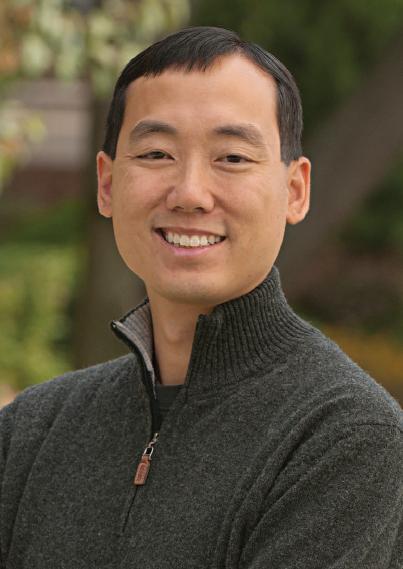
 |
Andrew Lam didn’t take the typical route to becoming a novelist.
He studied military history and US-East Asian relations as an undergraduate at Yale University, and was “avidly passionate” about learning about World War II in great detail. He can recite information about the Dixie Mission, D-Day and the Battles of Midway and Guadalcanal with great detail.
But the 38-year-old Lam, who grew up in central Illinois, also had a dad who was a cardiologist, and growing up, he saw how much his dad loved and found his work fulfilling.
“It wouldn’t be uncommon for strangers, these elderly people, to stop us at the mall or on the street and thank my dad for saving their lives or the lives of their loved ones,” he said.
“Those were really indelible impressions on me as a kid. I basically said to myself — and it’s a cliché — I love helping people, I love interacting with people. So I decided to go to medical school.”
Lam went to medical school at the University of Pennsylvania. He wanted to be a surgeon and he loved learning about the eye, he said, so he got training in ophthalmology and retinal surgery at the Wills Eye Hospital, where he also served as chief resident.
Still he remained fascinated with World War II history and researching the thousands of American soldiers who served in China. And so his novel Two Sons of China was born.
Set in the 1940s, the book is about the friendship between an American lieutenant and a Chinese guerilla leader. The American, David Parker, learns about the Dixie Mission — a group of American soldiers who go to Yenan to help Mao’s army and one of the first US efforts to establish relations with the Chinese Communist Party — and joins it. There, Parker meets an officer, Lin Yuen, who is at first annoyed by the presence of an American soldier, but the time the two men spend fighting shoulder-to-shoulder help them forge a strong, however unlikely, friendship.
The storyline is based on research Lam had done in college when he got to better understand Americans’ involvement with the Chinese guerilla fighters fighting against the Nationalist Party and the Japanese at the time.
“The Americans started hearing about these effective guerilla fighters who were of course fighting Japan in northern China, and they said, ‘Hey, the enemy of our enemy is our friend. We need to get these guys out, and maybe even start supplying them with weapons, because the Nationalists are hoarding our supplies and selling our stuff on the black market. Our allies are not really doing anything to help the war effort,’ in their opinion,” Lam explained.
Many of the American soldiers who went to China were special foreign service officers who knew Mandarin and Chinese customs because they were sons of missionaries who had lived in China. The US GIs were “really impressed” by the Communist soldiers’ loyalty and motivation.
But those Americans would eventually be punished for admiring the Chinese: they wrote favorable reports about the Communists but “this was not what a lot of people in the State Department wanted to hear”, Lam said.
These reports would go on to haunt the American soldiers and during the McCarthy era many of the men who had served would have their careers ruined because they were accused of being Communist sympathizers.
“They were reporting honestly on what they saw and they’re kind of unsung American heroes. These men — like John Paton Davies and John Service —served with honor, but were persecuted,” Lam said. “And it was too bad.”
Lam’s novel recently won the Best Book Award for fiction from the Chinese American Librarians Association, an affiliate of the American Library Association. The association focuses on books that are related to China or written by Chinese and Chinese-American authors.
Two Sons of China also won the 2015 Independent Publishers Book Award for military fiction. Lam said he is in the process of negotiating film rights.
“It’s always a thrill for me because my whole point as an author is to try to convey parts of history that deserve to be more well known but aren’t necessarily that well known,” he said. “The part of the war in China really isn’t that well known, compared to the other parts in Europe or the Pacific. Everyone knows about D-Day or Midway, but little do people know that tens and thousands of Americans served in China.
“I feel like it’s part of the Forgotten Theater. So it was really great to get this recognition because I know that a lot of people who may not know a lot about this history or this aspect of the war will get to know more of it from the book,” he said.
Lam lives in Massachusetts with his family and works as a retina surgeon at a private practice called the New England Retina Consultants. He is also an assistant professor at Tufts University.
amyhe@chinadailyusa.com